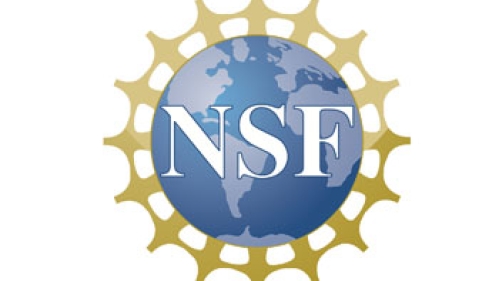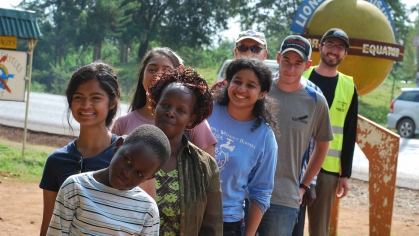NSF Award Funds Advanced Materials Research Experiences for Undergraduates

This summer, a cohort of undergraduate students from across the U.S. arrived on campus to take part in a ten-week National Science Foundation-funded Research Experiences for Undergraduates (NSF REU) program, “Advanced Materials at Rutgers University.” The program gave students from diverse and underrepresented populations – as well as first-generation students –opportunities to conduct interdisciplinary research in advanced materials at Rutgers.
Advanced Materials at Rutgers University received initial NSF-REU funding in 2017 and was led by chemical and biochemical engineering professor Masanori Hara and materials science and engineering professor Richard Lehman.
The project, which recently received renewed support from a $383,000 NSF-REU grant, is jointly run by Meenakshi Dutt, an associate professor in the Department of Chemical & Biochemical Engineering and Deirdre O’Carroll, an associate professor in the Department of Materials Science and Engineering. “Meenakshi and I were senior personnel on the original grant and mentored numerous Advanced Materials REU students over the years,” says O’Carroll.
In addition to supporting new research areas and entrepreneurship lectures and activities, the current grant covers summer stipends for the REU students, along with supplies for research, and travel expenses, and room and board.
Attracting Next Generation Materials Science Engineers
“The big picture benefit of the grant is to attract high quality undergraduate students to our graduate programs to carry out materials research at Rutgers,” explains O’Carroll. “It also ensures that students are prepared for interdisciplinary research across disciplines and strengthens their prospects for impactful careers in STEM.”
The undergraduates, according to Dutt, were recruited from institutions such as the University of Puerto-Rico-Humacao, Trinity University, Bucknell University, Simmons University, and Kean University, and assigned to different research groups.
“Materials science is a cross-disciplinary field that is foundational to the development of a vast array of science and engineering technologies – ranging from smartphones to health care products – that affect our daily lives,” says O’Carroll.
She adds, “The students in our REU are from a variety of different academic backgrounds – materials science and engineering, biomedical engineering, chemistry, mechanical engineering, biology –it’s exciting to see them interact and learn from each other about very different areas of materials research at Rutgers.”
Cutting-Edge Research Projects
“Since their arrival on campus, they’ve been working on projects in their designated research groups,” Dutt notes. Using computational, experimental, and theoretical approaches, they are working on developing nano- to macro-scale advanced materials. They also are trained in improving written and oral communication skills.
An interdisciplinary group of nine Rutgers faculty are involved in overseeing student projects involving everything from the safe storage of nuclear waste using glasses to protein engineering for plastic recycling, from biomanufacturing using bacteria to the synthesis of new semiconductor nanomaterials.
“In addition, they’ve been attending seminars on research design, presentation, and entrepreneurship, and other topics, and have given oral project presentations,” says Dutt. “Many of the students have made trips to neighboring cities like New York and Philadelphia, and picnics and social events have been organized for the students.”
An Intellectual Tool Set for the Future
In addition to providing research opportunities to students from around the country for whom they would otherwise not be available, the NSF-REU award provides professional skills to help the students advance their careers.
“Students are learning about research design and problem solving using approaches and methodologies from different disciplines, which will expand their intellectual tool set as they move forward to join the workforce to solve real world problems. I am grateful,” says Dutt, “to have a small role in this.”


